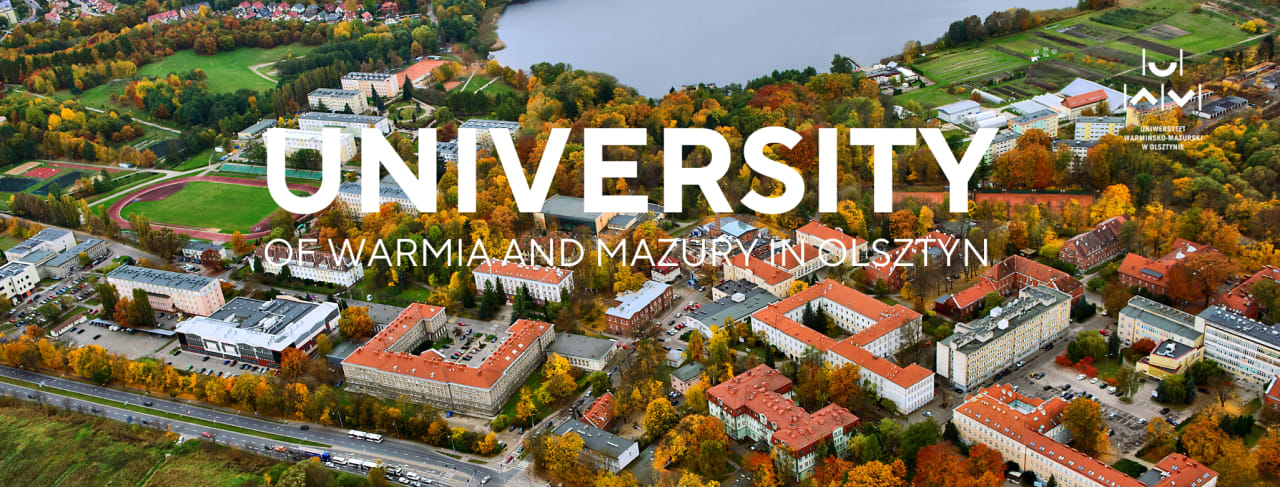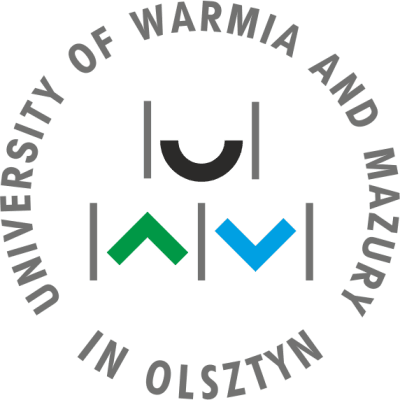
MSc in Geodesy and Geoinformatics
University of Warmia and Mazury in Olsztyn

Key Information
Campus location
Olsztyn, Poland
Languages
English
Study format
On-Campus
Duration
3 semesters
Pace
Full time
Tuition fees
PLN 5,000 / per semester *
Application deadline
Request info
Earliest start date
Request info
* per semester, approximately 1 100,00 Euros/semester; fee only for non-Polish citizenship students
Introduction
The master's degree study (3 semesters) in the area of Geodesy and Geoinformatics provides the candidate with extensive knowledge and skills in the field of geodesy and cartography, with special emphasis on the latest technologies for gathering and processing data acquired with the use of remote sensing methods. The offered courses enable the candidate to gradually develop his/her skills in the area of geodesy and geoinformatics. The curriculum includes general and introductory courses offering both theoretical knowledge and practical instruction. The curriculum includes general and introductory courses (Mathematics, Physical Geodesy, Geostatistics, Earth observations, GIS programming), specialist courses modeling the future surveyor’s profile (Advanced geodesy, GNSS surveying, Advanced Satellite Remote Sensing, GNSS data processing and GNSS applications, Satellite navigation).
The course includes also occupational training preparing the graduate to perform specialist services in the area of acquiring data for spatial information systems: Information technology in geomatics, GIS modeling and analysis, Database design, Geovisualization, WEB, and mobile GIS, Geostatistics. Summer School courses prepare the graduate to perform highly specialized services in the area of Unmanned Aerial Vehicles, Bathymetric Measurements, GPR measurements, GIS projects, and Cloud GIS. Every student is required to submit a master’s degree thesis. The curriculum includes facultative courses providing students with the freedom of planning their educational programs.
Studies in the area of Geodesy and Geoinformatics prepare the graduate for employment in surveying, cartographic and geoinformatics surveying companies, research institutions and development centers, and in central and local administration units.
Recruitment
The condition for applying for admission to the master studies - the master's is to have the diploma of graduation from one of the following courses:
- Geodesy and cartography
- Geoinformatics
The criterion of recruitment is the ranking of the final result of studies - without being aligned to the full grade, within the specified limit of places.
Curriculum
The program of study
Semester 1
- Foreign language laboratory
- GIS programming
- Information technology in geomatics
- Mathematics
- Space Radio-Diagnostic techniques
- GNSS surveying
- Advanced Satellite Remote Sensing
- Advanced geodesy
- Database design
- Geostatistics
- Etiquette
- Safety and Hygiene at Work
- Intellectual Property Protection
- Ergonomics
- All-campus lecture
Semester 2
- Airborne and Terrestrial laser scanning
- Earth observation
- Satellite navigation
- GNSS data processing
- GPR measurements
- GNSS applications
- WEB and mobile GIS
- Master's thesis
- GIS modeling
- Entrepreneurship
Semester 3
- Bathymetric surveys
- Unmanned Aerial Vehicles (UAV)
- Geovisualization
- Spatial Data Infrastructure
- Physical geodesy
- Master's thesis
- Monographic lectures
- GIS analysis
- All-campus lecture
Program Outcome
Learning outcomes
In the area of knowledge, the student:
- Has knowledge of advanced IT methods in geodesy and cartography;
- Has knowledge of foreign languages in the field of geodesy and cartography;
- Is familiar with the general principles of entrepreneurship, copyrights, and industrial property rights, business etiquette, occupational health and safety regulations, and basic principles of ergonomics;
- Has extensive knowledge of mathematics required for work in the field of geodesy and cartography;
- Has extensive knowledge of geodesy, higher geodesy, physical geodesy, geodynamics, and geoinformatics;
- Has extensive knowledge of satellite remote sensing;
- Has organized theoretical knowledge of practical geodesy and special measurements, including measurements that involve laser, ultrasound, and electromagnetic sensors;
- Has extensive knowledge of global navigation satellite systems (GNSS), planning and satellite measurements, and is able to put that knowledge to practical use;
- Has extensive knowledge of cartography, spatial analyses, and visualization techniques.
- Has extensive knowledge of programming, designing, and administering geoinformatics systems, CAD software, and data transmission methods;
- Understands social, economic, legal, and non-technical aspects of engineering operations and uses that knowledge in engineering practice;
In the area of skills, the student:
- Deploys IT solutions in geodetic and cartographic applications;
- Has working knowledge of a foreign language, including specialist language in the field of geodesy and cartography;
- Performs preliminary economic assessments for engineering projects;
- Has the necessary knowledge and skills for work in an industrial setting, is familiar with work safety requirements;
- Uses analytical methods to formulate and solve engineering tasks and simple research problems in the field of geodesy and cartography;
- Acquires and uses information in the field of geodesy, higher geodesy, physical geodesy, geodynamics, and geoinformatics;
- Uses satellite remote sensing tools in engineering projects in the field of geodesy and cartography;
- Plans field measurements and experiments, perform engineering measurements and special measurements, processes and interprets results;
- Puts the knowledge of GNSS to practical use, plans and performs measurements with the involvement of satellite measurement methods, performs object positioning projects, processes the results of satellite observations;
- Has knowledge of the Unmanned Aerial Vehicles, GPR measurements, and hydrographic surveys;
- Processes, analyzes and visualizes spatial data in various ways;
- Designs components of geoinformatics systems, use geoinformatics tools and CAD software, updates and manages system data, creates access to data;
- Integrates legal knowledge with knowledge of geodesy and cartography to formulate and solve engineering tasks and non-technical problems.
- Analyzes, proposes, and develops modern and professional tools and solutions relevant to the field of geodesy and cartography.
In the area of social competence, the student:
- Recognizes the need for lifelong learning, continuously improves his/her qualifications through education (doctoral studies, post-graduate studies, courses), recognizes the need for personal and social skills improvement, thinks and acts in an entrepreneurial manner;
- Has teamwork skills and is able to perform various engineering projects in a team effort;
- Correctly identifies and solves problems associated with land surveying;
- Recognizes the importance of digital technologies in public life;
- The student is creative, capable of solving tasks and conceptual problems independently, is aware of the relationships between objects in space, can effectively present and communicate spatial problems, actively uses geoinformatics tools;
- Has teamwork skills and is capable of performing different roles and choosing priorities for tasks and projects;
- Creatively uses the latest open source IT solutions;
- Observes legal regulations applicable to geodetic engineering and the relevant laws;
- Recognizes the significance of non-technical aspects and understands the implications of engineering activities, including their environmental impacts;
- Is open to new advances and technologies in geodesy and cartography.
Career Opportunities
Job opportunities
Surveying companies, small enterprises, local and central administration units, business support services, research institutions, and development centers.